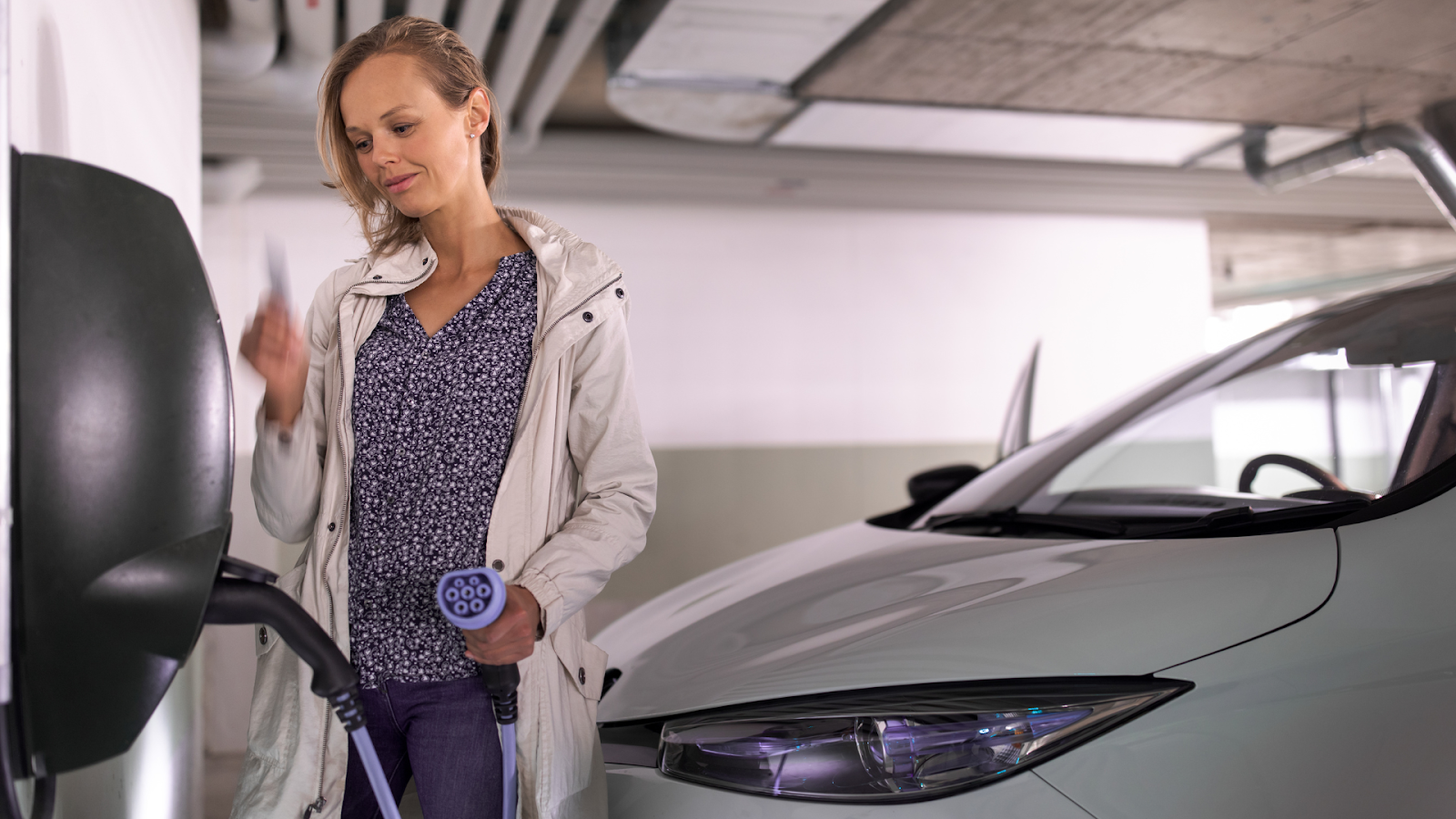Electric vehicles have quickly established themselves as the future of mobility. Read to see how the Internet of Things is driving this transformation.
Electric vehicles have gained immense popularity in recent years as customers strive to transition from gasoline-powered engines to climate-friendlier mobility options. Today, it is estimated that
one in every 250 cars on the road is electric, and EVs hold around 2.2% of the global vehicle market. The electric vehicle market share is exceptionally high in the Scandinavian region, with EVs accounting for
an awe-inspiring 79% of the total car sales in Norway in 2022.
As the demand for electric vehicles continues to rise, the systems behind EV infrastructure and charging are also becoming increasingly popular. Companies in the space are deploying advanced solutions to enhance the overall EV experience and address customer issues. As a result, technologies like the Internet of Things have become engrained in the electric vehicle revolution.
IoT presents numerous opportunities for electric vehicles to become even more efficient, convenient, and safe. By connecting parts of the EV ecosystem to the internet, manufacturers, users, and third-party service providers can gather meaningful data to optimize vehicle performance and driving experience.
Read on for four compelling ways IoT is driving electric vehicle adoption.
1. Connected Charging Stations
As electric vehicles become more prevalent, installing electric vehicle charging stations is becoming increasingly commonplace. However, in many cities, these stations can be few and far between, making it difficult to find a place to charge your vehicle. Moreover, traditional charging stations are not smart enough to alert users when available or in use or inform operators when they require maintenance or are overloading the grid.
Connecting charging stations to an IoT network can solve these issues. IoT-enabled charging points enable users to see which stations are available, while operators can check the status of their machines remotely and get notified when they require maintenance. Moreover, with smart meters connected to an EV's charging station, EV owners can easily track their energy usage and control how much power their vehicle consumes.
2. Predictive Maintenance
Like all vehicles, regular maintenance is necessary to keep EVs running smoothly. Traditionally, vehicle maintenance is performed at estimated intervals based on mileage and engine components, but this can be time-consuming and costly for the owner. Sometimes, components are replaced before their end-of-life, while other times, breakdowns occur unexpectedly.
IoT technology provides an innovative solution to this inefficiency: predictive maintenance. Collecting vehicle data from sensors during regular operation makes it possible to estimate the remaining useful life (RUL) of components and perform maintenance when necessary. This not only boosts efficiency but also saves money.
Predictive maintenance is even more beneficial for EVs due to their higher component and labor costs. With this technology, maintenance becomes predictable and cost-effective. Breakdowns are minimally seen, preventing costly downtime and unplanned, expensive trips to the workshop.
3. Smarter battery management
Without a doubt, the battery is the most crucial component of any electric vehicle. Unfortunately, it is also the most expensive and difficult to replace. According to a recent report, a battery replacement can
cost between $4000-$20,000, depending on the make and model. For this reason, EV owners need to monitor their batteries regularly to prevent any unforeseen malfunction.
An intelligent battery management system (BMS) is the ideal solution for managing EV batteries as it safeguards them from excessive power output, which might lead to thermal instability. At the same time, during discharge protection, it ensures that cells aren't over-utilized when their capacity is nearly depleted. Deep discharging undermines lithium cell longevity and could destroy it in extreme cases.
Additionally, a BMS provides real-time updates about any other irregularities that may have been detected while self-correcting to ensure accurate results. These features enable an EV owner to get the most out of their battery and avoid any unexpected downtime.
4. Improved EV safety
The rise of EV technology has created a need for increased safety standards, both on and off the road. For instance, high-voltage EV batteries are substantially more hazardous than the batteries in conventional vehicles. As a result, special attention must be given to ensure these batteries operate safely and securely. In addition, many EVs are moving to self-driving functionality, further increasing the need for reliable safety protocols.
IoT technology can be used to ensure the safety of EVs and their passengers. IoT-enabled sensors can detect irregularities in the vehicle's components and send out alerts if something is amiss. As a result, operators can address safety issues quickly and proactively before they become a problem.
In addition, IoT technology can also be used to monitor the vehicle's environment and prevent any potential accidents or incidents. By providing real-time data such as location, speed, and traffic conditions, drivers can be alerted to any potential hazards they may face on the road. This can help reduce the chances of an EV-related accident and keep everyone safe.
Connectivity is fundamental to EVs
Connectivity is paramount in today's digital landscape, especially for EVs. IoT technology enables connectivity between cars and the surrounding infrastructure, making it possible to monitor electric vehicles in real-time. This can provide invaluable insights into their performance and enable smoother functioning.
Moreover, a connected vehicle ecosystem also helps control traffic flow by rerouting vehicles and increasing the efficiency of traffic systems. It also eliminates the need for drivers to manually search for a charging station since these can be easily located using GPS and navigation systems.
As electric vehicles become increasingly popular, IoT technology is set to play an essential role in their success. If you are an IoT developer looking to venture into a new industry, consider the EV market. Browse the
IoT2Market smart city section for solutions for creating IoT-driven EV projects.





